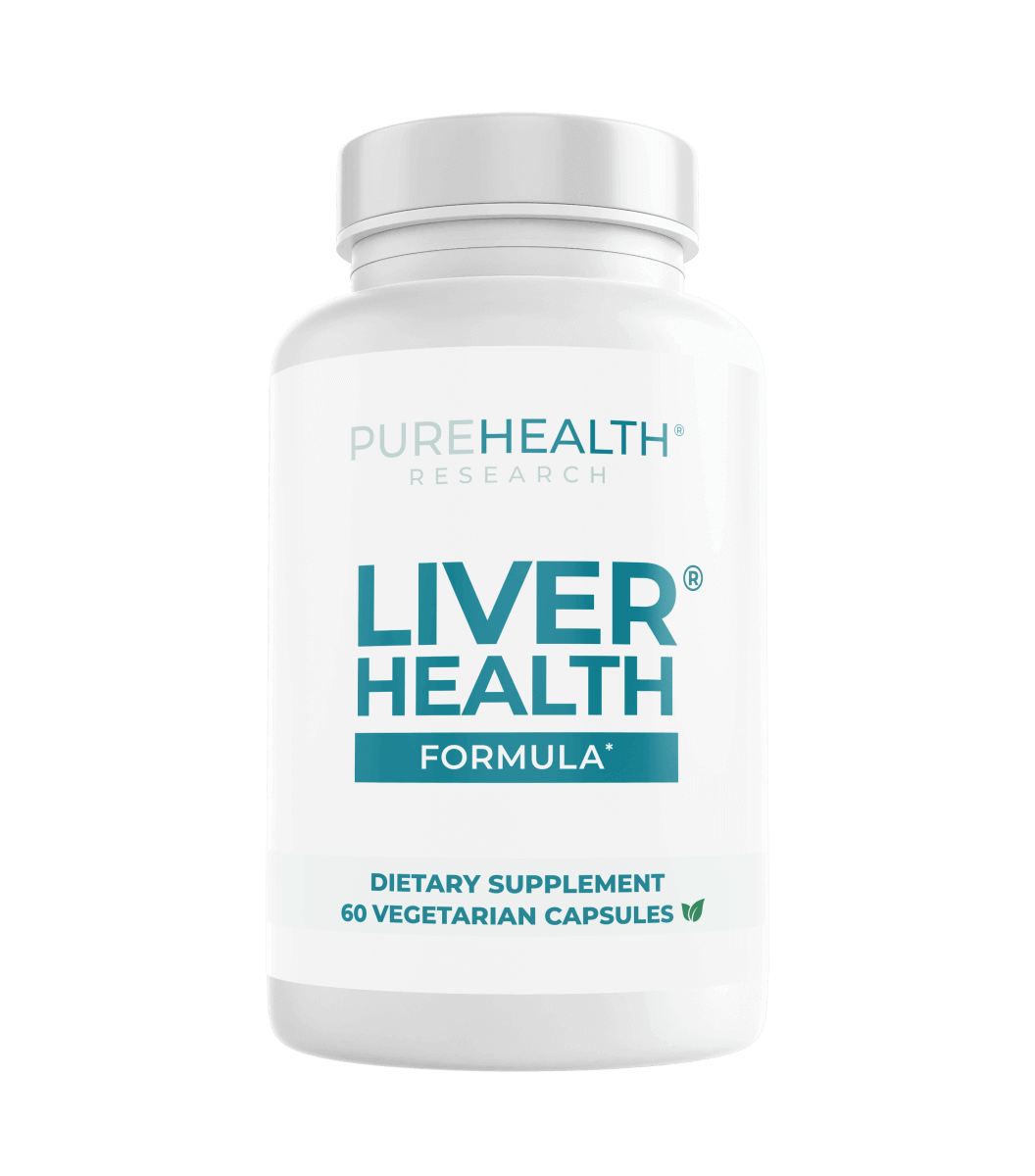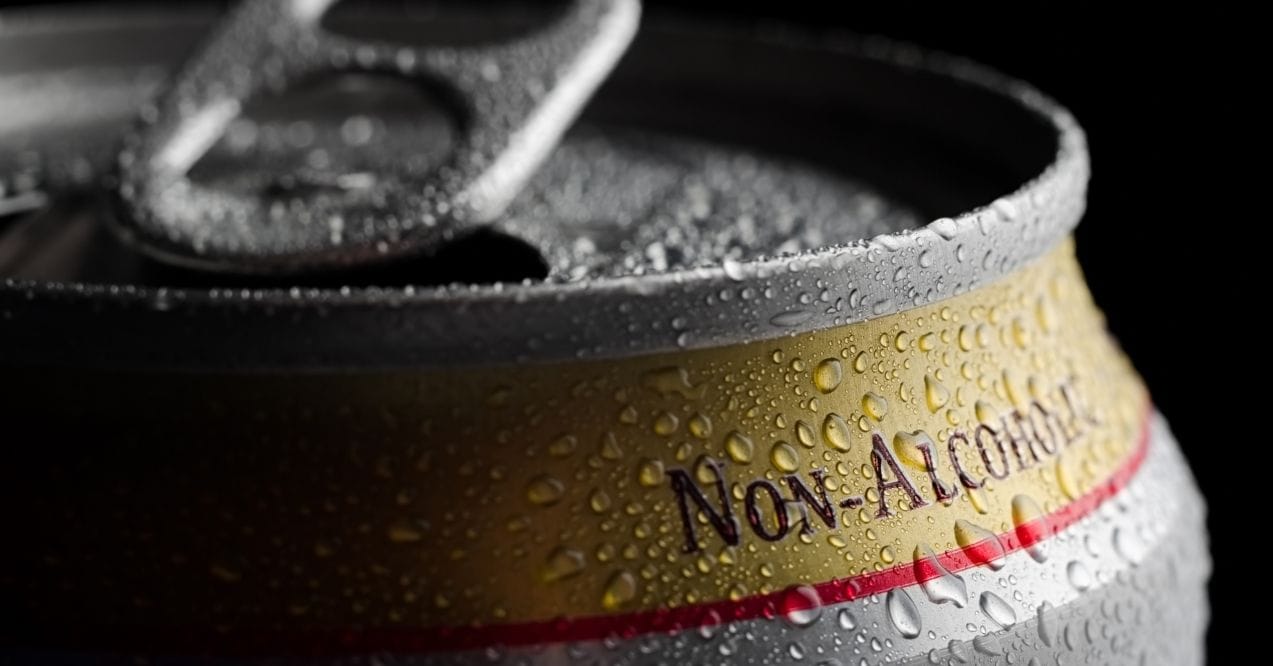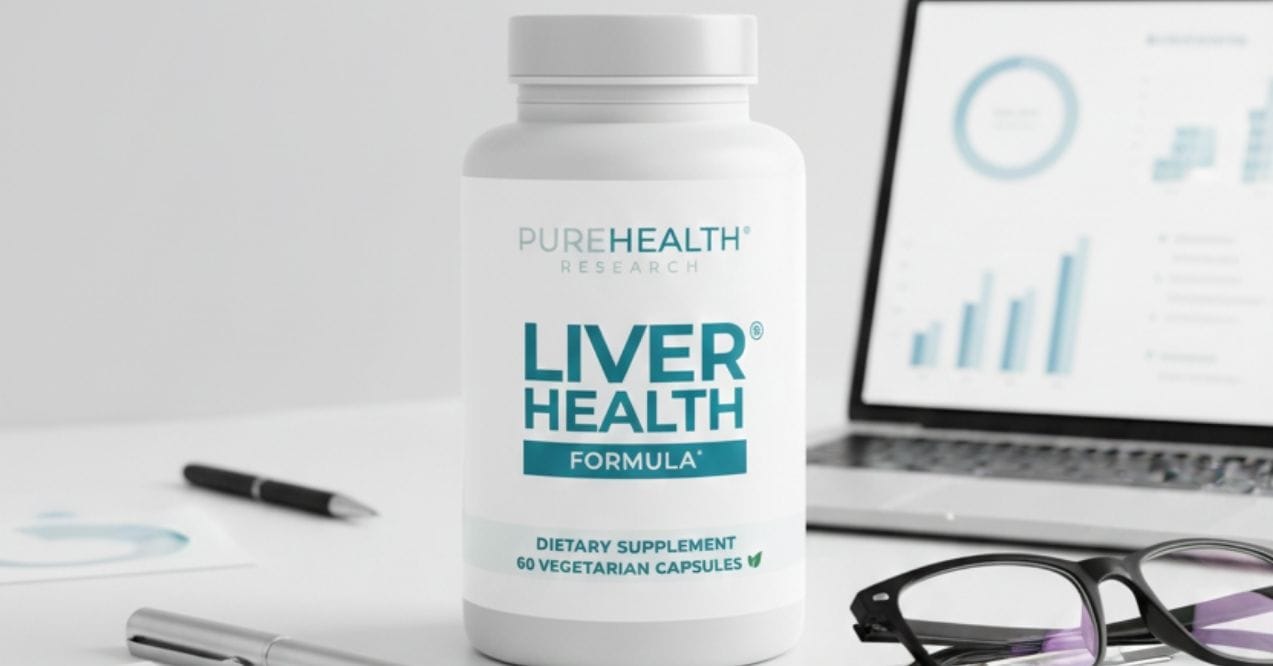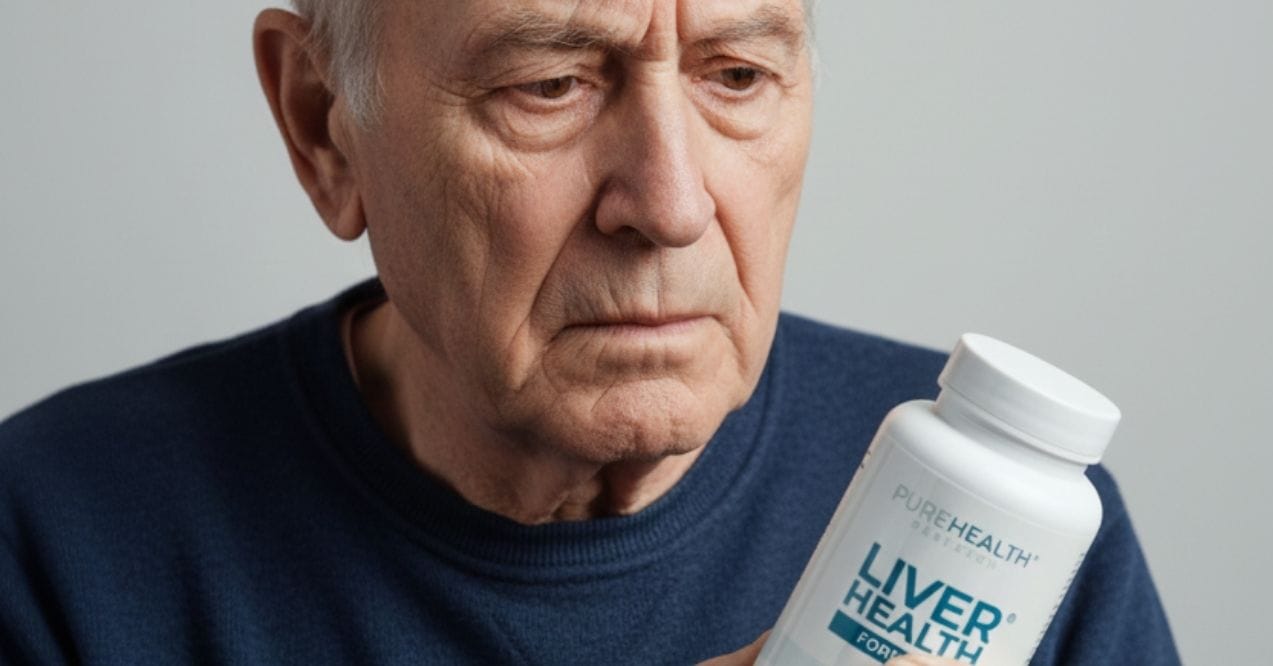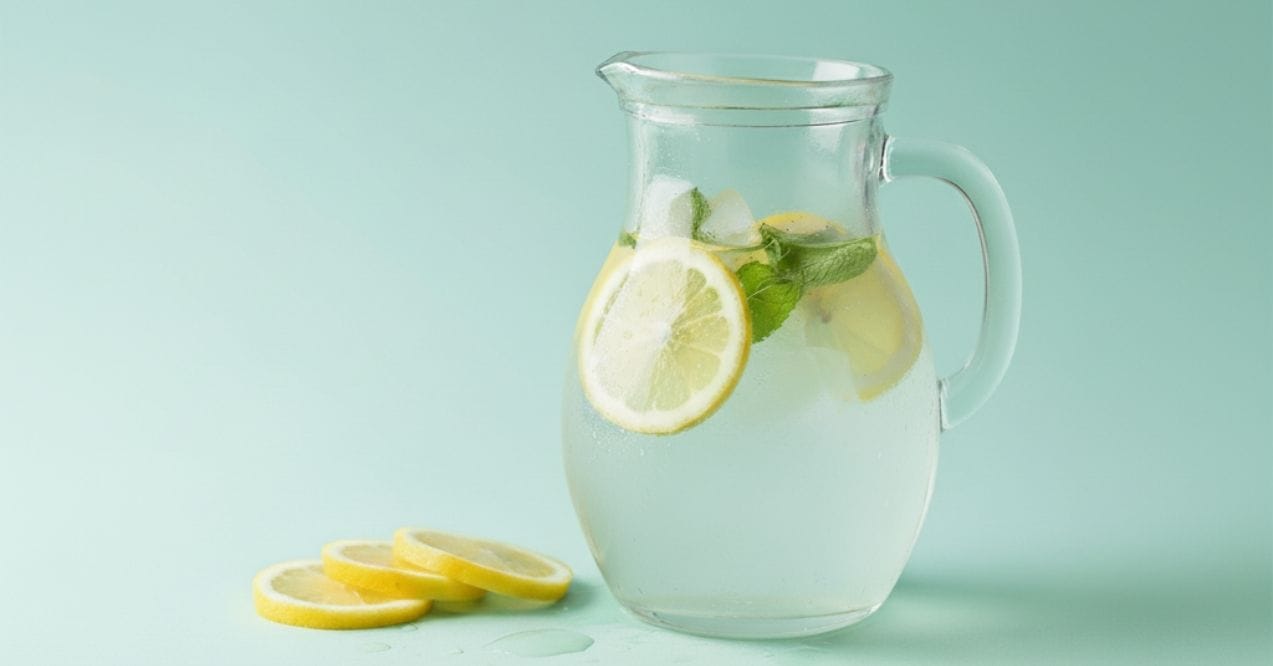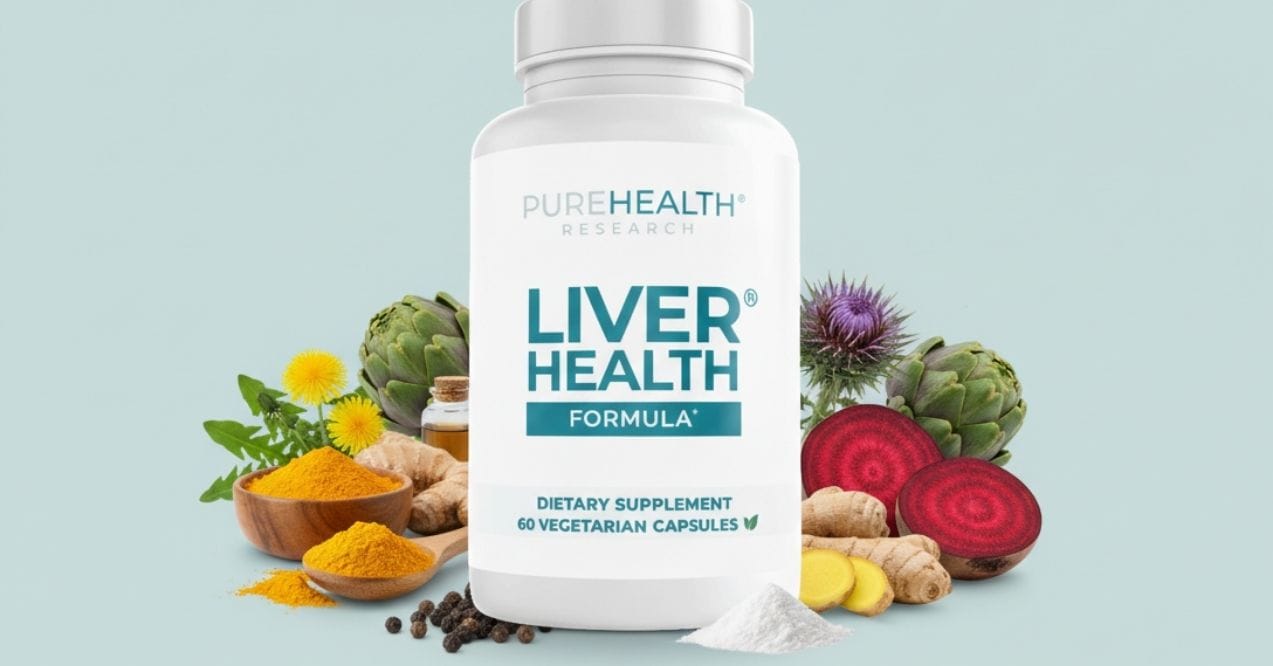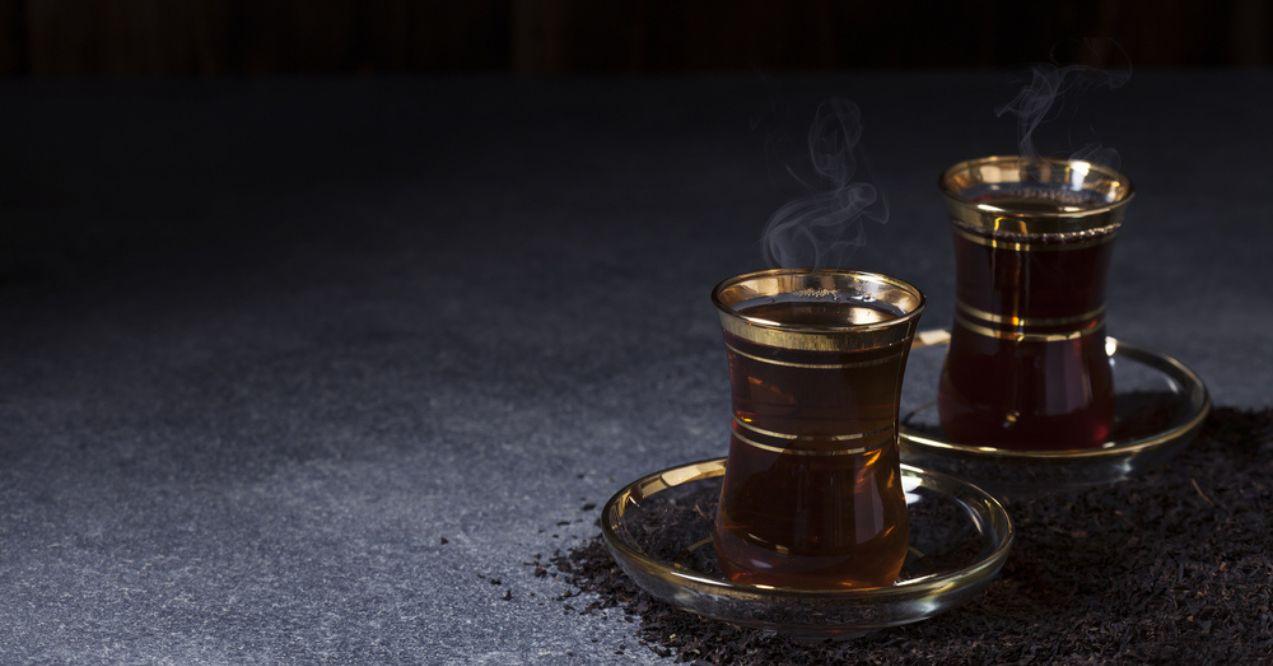What Foods Can Damage Your Liver?
You probably know that alcohol is bad for your liver. But do you know what foods can damage your liver? Learn how to eat for a healthy liver.
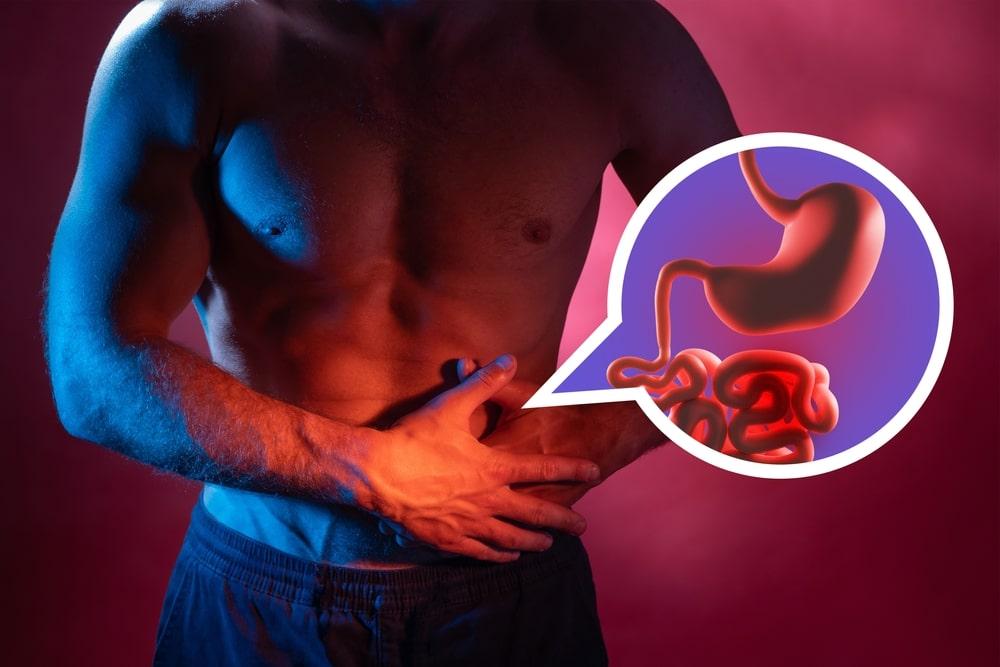

Your liver is one of the most important organs in your body. What foods can damage your liver? Every time you put anything into your mouth, be it food, drink, or even air, your liver works to filter out the toxins. Day and night, your liver is “on” to make sure that you are only getting the healthy nutrients from what you consume and that the bad stuff gets put on the fast track to becoming waste.
Before we take a look at what foods can damage your liver and talk about some alternatives, as well as discuss why it’s so important to have a healthy liver, take your time to read our article about the best ways to improve liver function.
What Effect Does Food Have on the Liver?
An overworked, damaged liver has myriad effects on a person’s body. Your liver is a part of many important systems that affect your daily functioning. When it’s off balance, your digestion and metabolism are out of whack, which means you could have digestive trouble, ulcers, or pain.
You could also gain or lose weight rapidly because your body isn’t pulling nutrition correctly. If a liver is damaged enough that it swells and can no longer filter out toxins, not only will you be uncomfortable, but your body could become jaundiced, too. Jaundice is when the skin or whites of the eyes turns yellow because of all the built-up toxins in the body.
Many people with liver problems also feel that their cognitive functioning is impaired. Your liver helps ensure that the proper nutrients are put back into the bloodstream and able to go to your brain. But when foods have damaged your liver, this is more difficult. Your brain can’t process and function fully when it doesn’t get the vitamins, minerals, and nutrients it needs. Additionally, liver issues can impact more than just cognitive function—many people wonder, can liver disease cause shortness of breath? In some cases, liver dysfunction can lead to fluid buildup or reduced oxygen levels, making breathing more difficult.
What Foods Can Damage Your Liver? 7 Worst Options
You might read the following list and feel frustrated that most of the foods you’ve been putting into your body have only been doing you harm. You’d be in good company with most Americans—these foods are staples in some people’s diets!
However, these foods hurt your liver and aren’t healthy for other areas of your digestive system, either. Once you get rid of them—or scale them back—and replace them with healthier choices, you’ll feel so good that you won’t want to go back to a life filled with liver-damaging foods. So, what foods harm the liver?
1. Baked Foods
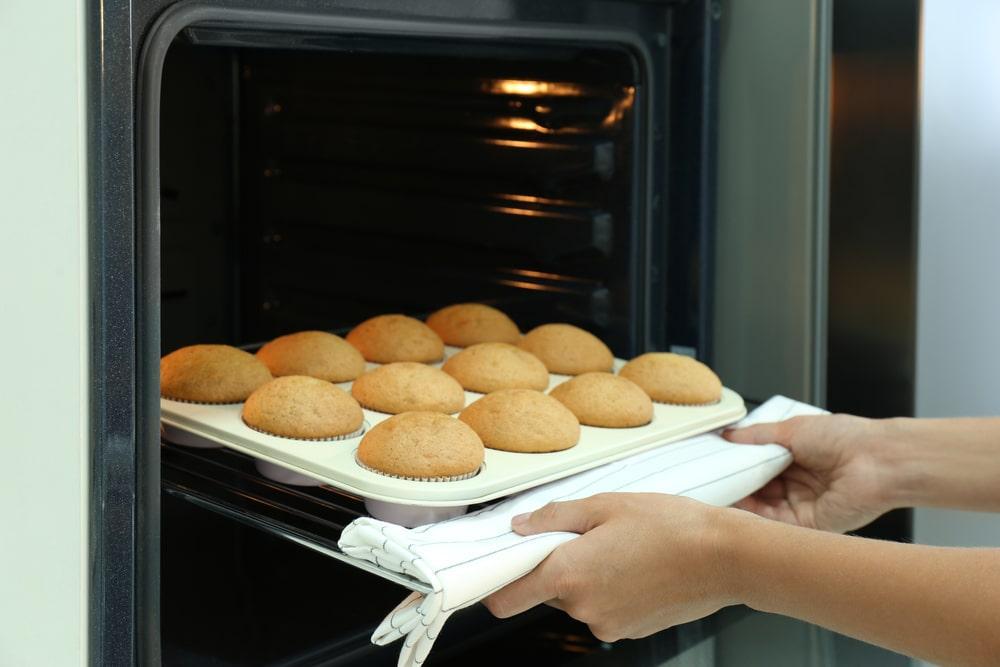
We’re not talking about baked fish and veggies here. Sorry, but this category is about baked treats, such as cakes, pies, and muffins. The main reason that baked treats like these are in the category of foods that damage your liver is that they are full of white flour!
White flour is incredibly hard to digest, especially for those who are gluten-sensitive. (Even if you don’t think you’re gluten intolerant, most of us are to some degree. We’ve just come to think that what we feel when we eat it is normal!)
For this category, experts believe that people with liver damage should eliminate these foods. Not only does overconsumption lead to obesity, but the triglycerides in most baked goods directly lead to several types of liver disease.
2. Refined Sugar
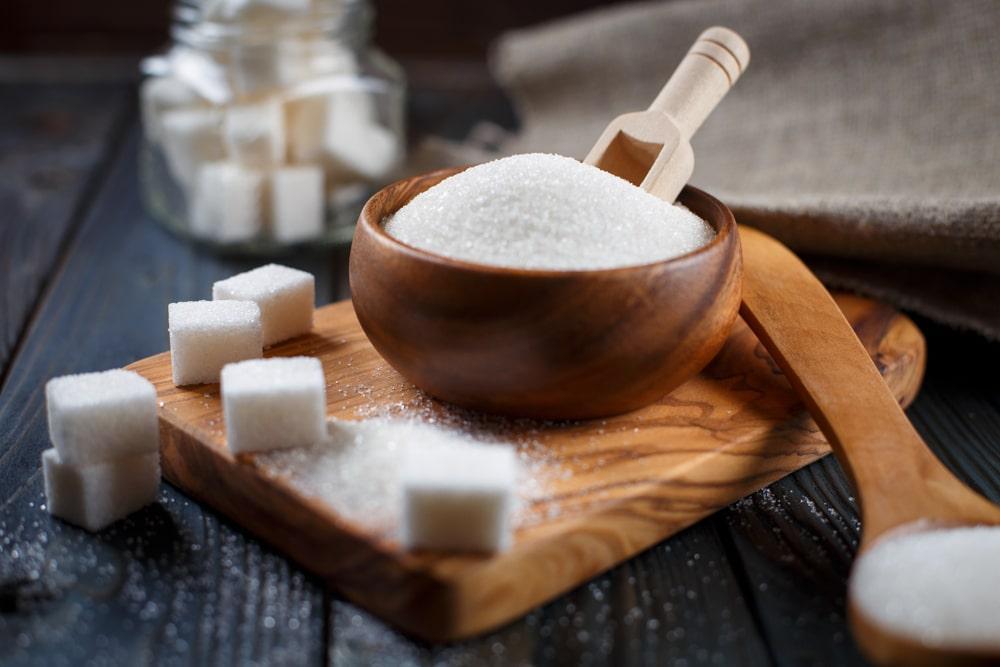
Sugar, when it isn’t in its natural form, is difficult for our bodies to process. This is because critical parts of the sugar cane plant are pulled away to refine and process it into what we know as white sugar. When those naturally occurring parts are pulled away from the sugar cane plant, it’s easier to process, cook with, and store, but it’s much harder to digest.
3. Alcohol
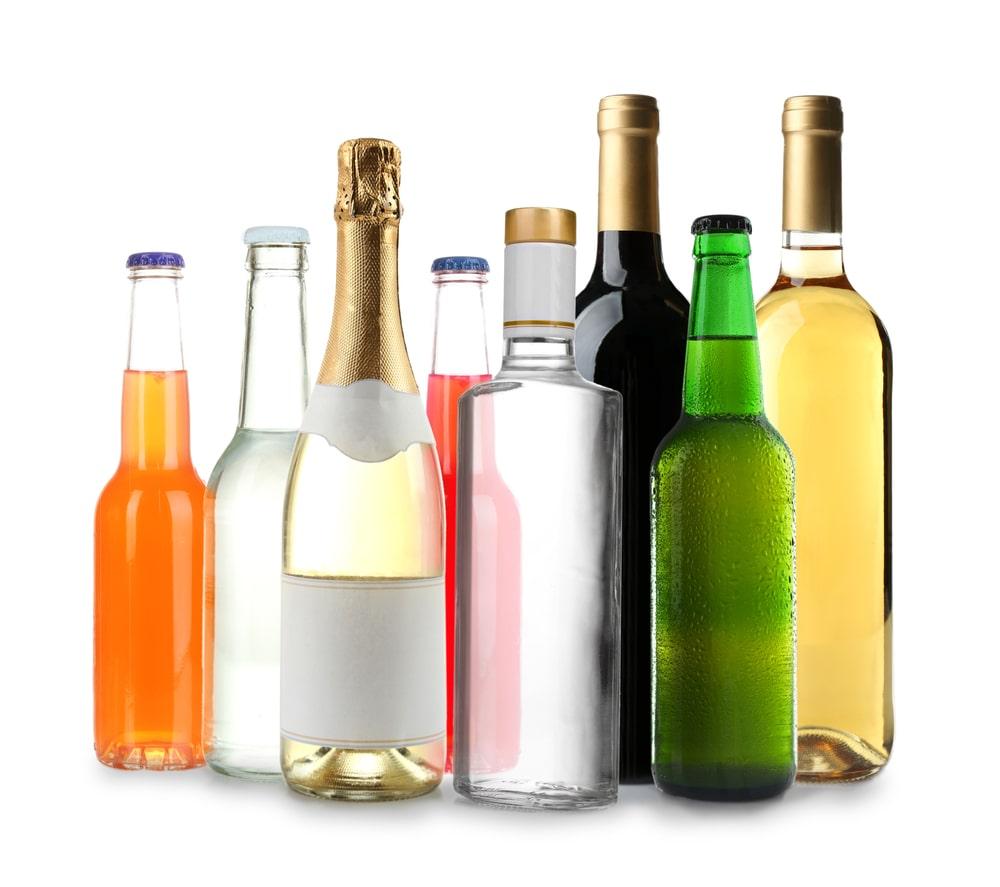
This one is a no-brainer. Excessive alcohol use leads to cirrhosis, which is a severe liver disease. Now, the liver can handle a moderate amount of alcohol. After all, its job is to filter out toxins. Western research puts the safe limit at 14 drinks per week to maintain healthy liver function, which works out to two per day.
When your liver breaks down alcohol, it creates a chemical reaction in the liver cells. When this chemical reaction happens too often, it damages the liver cells, leading to inflammation, scarring, and, eventually, cell death. Furthermore, heavy alcohol consumption also blocks your body from absorbing nutrients, which makes toxic effects on the liver even more severe.
Of course, no alcohol would be the best. But if you like to have a glass of wine with dinner or unwind with some social drinks on the weekends, just make sure you’re balancing that with plenty of liver-healthy foods. It’s also a good idea to have plenty of alcohol-free days and nights where you cut your liver even more of a break.
4. Salty Foods
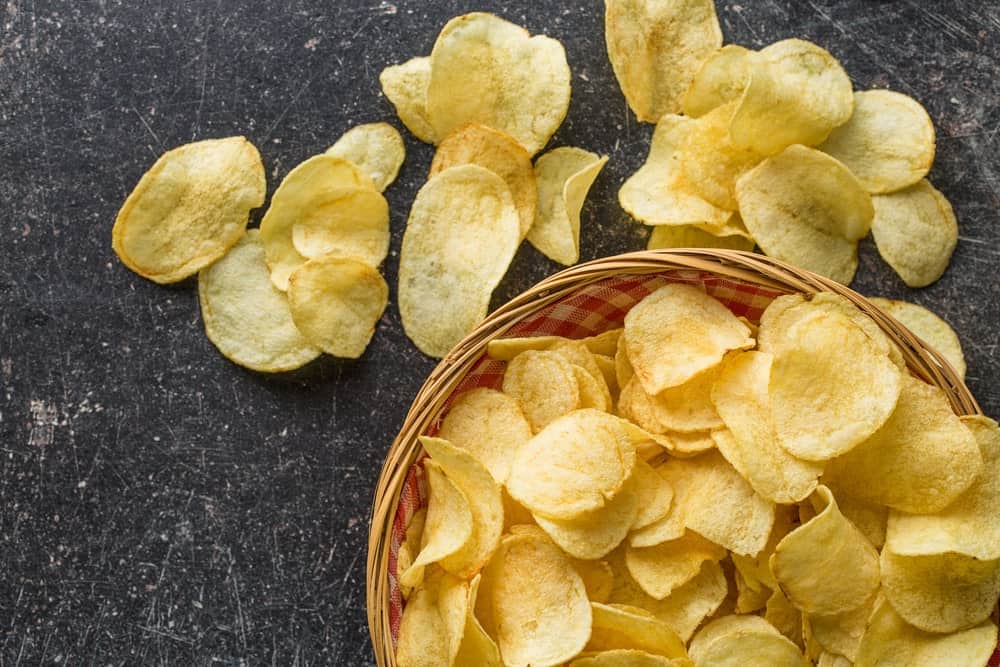
Salt is a necessary nutrient, but too much of it puts your liver into overdrive. Overconsumption of salt (especially the kind found in processed foods and fast-food items) leads to water retention. Foods that are high in sodium also include:
- Processed cheese
- Chips
- Snack mixes
- Canned soups
- Salty biscuits
5. Red Meat
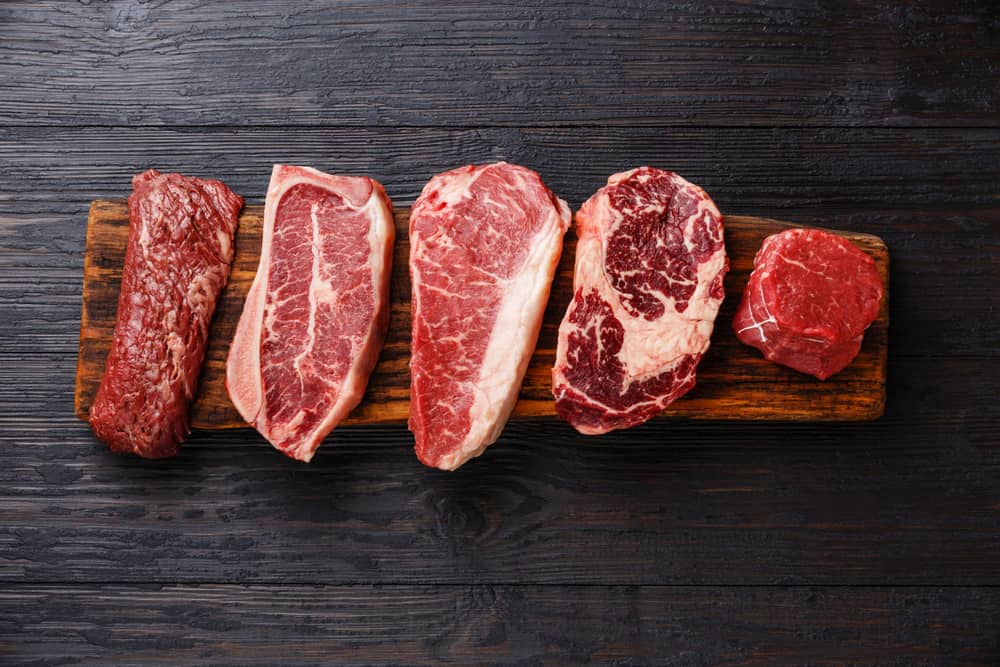
Sure, protein is good for you, and we all need a good amount of it to function well. However, red meat is difficult for the liver to digest. All types of proteins give the liver more work, and too much red meat often causes liver issues. When protein builds up in the liver, it leads to liver disease, which can further affect other organs such as your kidneys and brain.
6. Gluten-Based Bread and Pasta
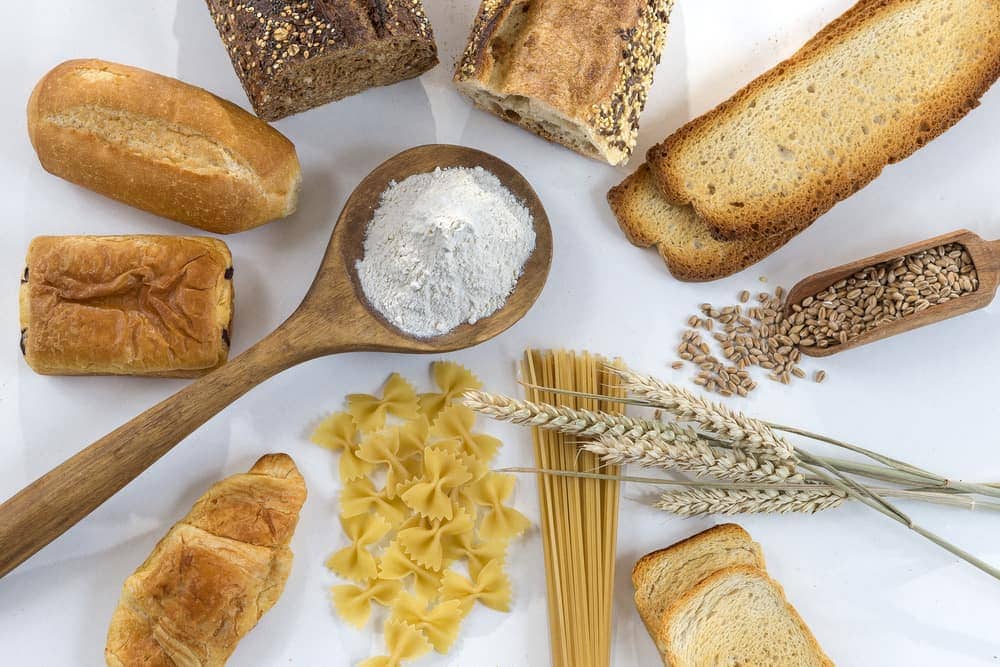
Unless you’ve been living under a rock this past decade, you’ve heard dietary experts putting gluten under the knife. Although people have been consuming grain for thousands and thousands of years, the grain produced today doesn’t have the same make-up as that of our ancestors. Not only that, our bodies have changed to not tolerate it as well, either.
Basically, any food containing white flour is going to be difficult for the liver to digest. Processed all-purpose white flour doesn’t have any essential vitamins, minerals, or nutrients. Furthermore, refined grains sit in your body and turn into sugar! And we already discussed how bad sugar is for your liver. Instead, choose carbohydrates that have other bases, such as almond flour, coconut flour, and cassava flour.
7. Saturated Fats
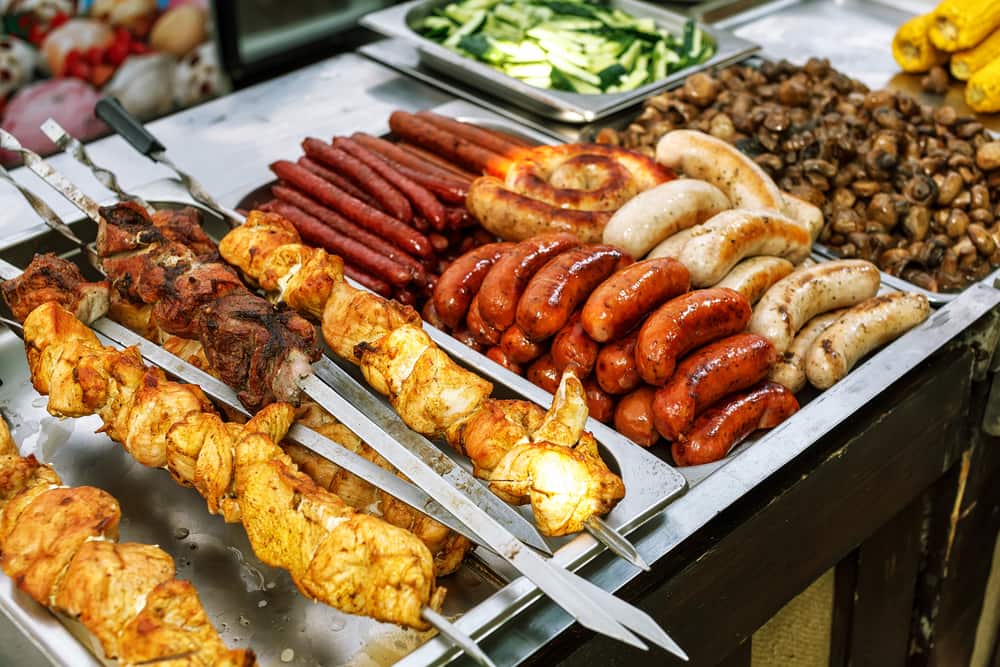
Yes, fat is good for you—if it’s healthy fat from a natural source. These sources include nuts, fish, eggs, avocado, coconut, olive oil, and olives. They don’t include trans fats, canola or vegetable oil, animal lard, or other foods that are high in saturated fat, such as those from fast-food restaurants.
If you already have liver issues from consuming too many foods that harm the liver, you’ll recognize the uncomfortable feeling that comes from eating fatty foods as soon as they hit your stomach. These foods are also high in cholesterol, which has further negative effects on the body.
How Do I Keep My Liver Healthy?
So, what do you do to keep a liver healthy? First, we’ve talked about what foods can damage your liver. But what should you replace them with? Luckily, there are a broad list of best liver detox foods that not only make your body feel good, they taste good, too! Some of them don’t even have to be cooked, so they’re easy to grab and eat on the go or to keep a supply of in the fridge or pantry.
- Coffee (in moderation)
- Green tea (in moderation)
- Fresh fruits (especially grapes and berries)
- Fresh vegetables
- Eggs
- Nuts
- Oatmeal
You can also do this with a dietary supplement, like PureHealth Research supplement Liver Health Formula. This easy daily supplement contains so many vitamins, minerals, and compounds that keep your liver healthy and functioning at its peak level of performance.

This supplement recommended by Dr. Holly Lucille, ND, will not only improve liver health, it will help burn fat and also give you high levels of energy throughout the day. Give your liver a boost with supplements for liver health, and know you’re getting the recommended daily doses of:
- Turmeric
- Bioperine
- Dandelion
- Vitamin D3
- Ginger
- Glycine
- Silymarin
- …and more!
Final Thoughts
Unfortunately, our culture has made a name for itself by overconsuming foods that harm the liver and not speaking openly about what foods hurt your liver. Everywhere you turn, it seems there are gluten-filled items, sugary baked treats, fatty foods, processed foods, and foods high in salt. Add alcohol on top of it, and you’ve got a recipe full of foods that damage the liver and damage your body!
Luckily, you now know what foods can damage your liver, and you know what types of foods you can consume to help give your liver a fresh start. The liver is an amazing organ and will begin healing itself as soon as it is given a break from all the liver-damaging foods and drinks that were bringing it down. You can read our article about signs your liver is healing and make sure you treat it right. You deserve a healthy liver and a healthy life!
The liver filters toxins, waste, and excess fluids from the body, ensuring only healthy nutrients are absorbed. It also aids in digestion, metabolism, and immune function.
White flour is hard to digest and can lead to obesity and liver disease. It’s also linked to gluten sensitivity, which can further strain the liver.
Reduce or eliminate liver-damaging foods, consume liver-friendly alternatives, and consider supplements designed to support liver health. Additionally, stay hydrated, exercise regularly, and maintain a balanced diet. By understanding the foods that harm and support the liver, you can make informed choices to maintain a healthy liver and overall well-being.
Sign up for our Healthy Living newsletter!
Advertisement. This site offers health, wellness, fitness and nutritional information and is designed for educational purposes only. You should not rely on this information as a substitute for, nor does it replace, professional medical advice, diagnosis, or treatment. If you have any concerns or questions about your health, you should always consult with a physician or other health-care professional. Do not disregard, avoid or delay obtaining medical or health related advice from your health-care professional because of something you may have read on this site. The use of any information provided on this site is solely at your own risk.
